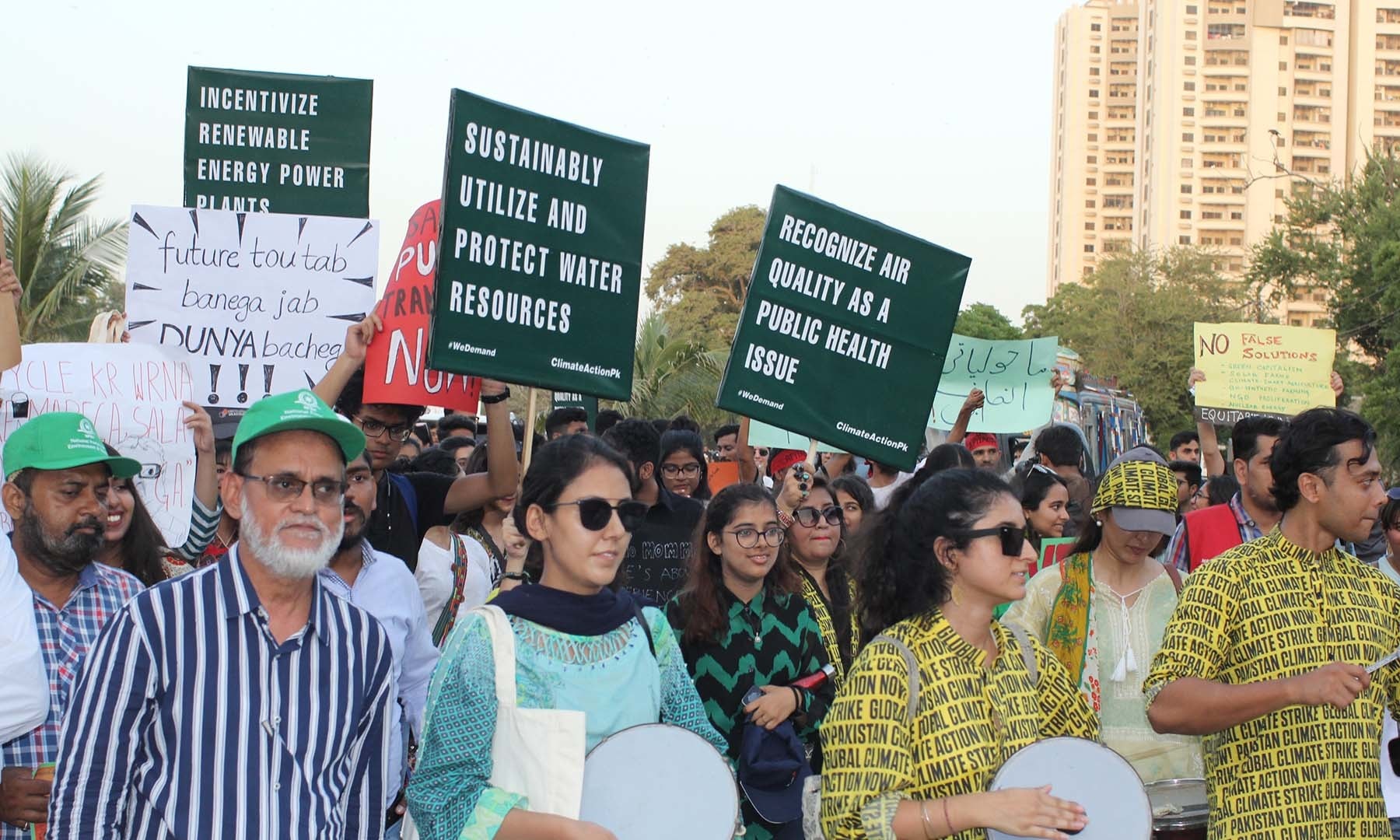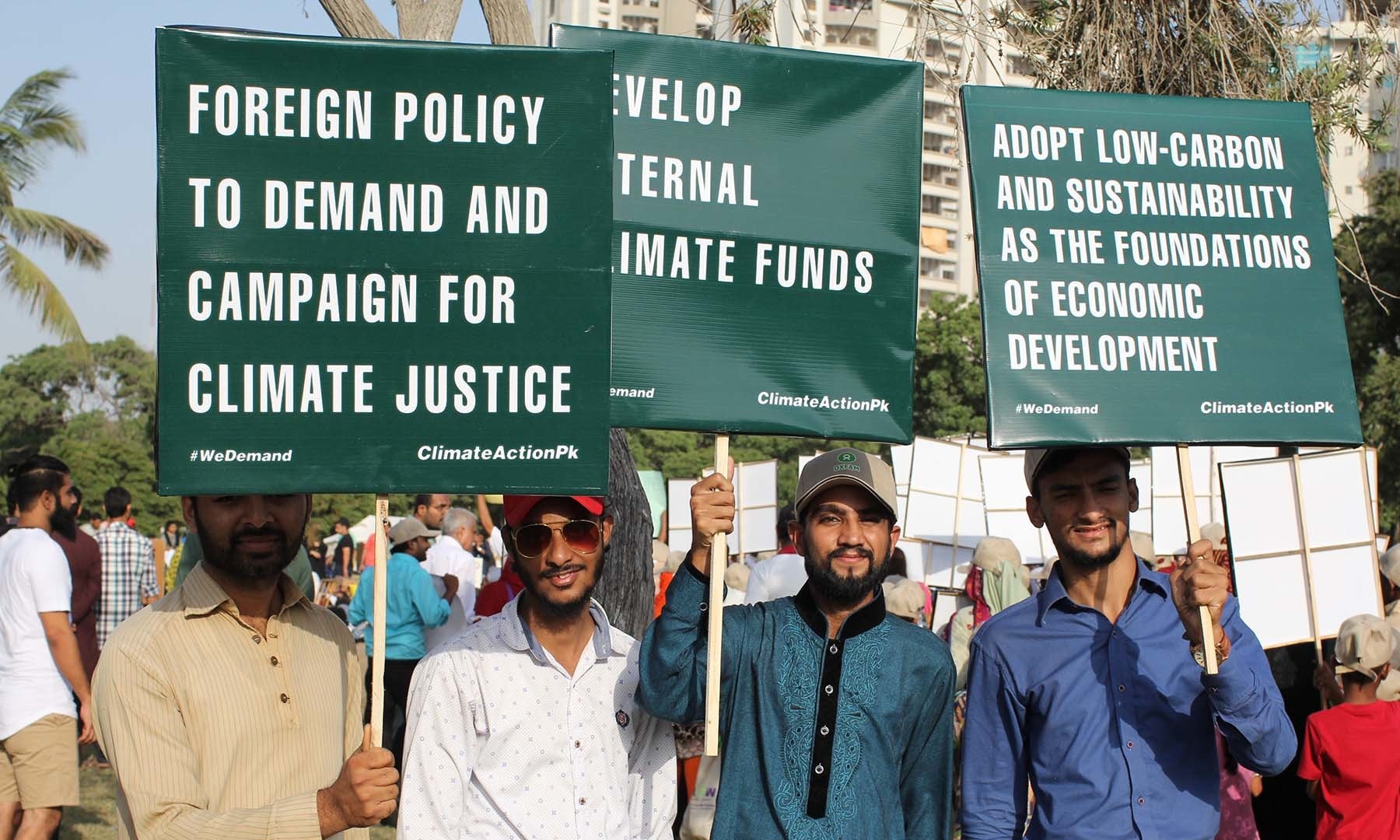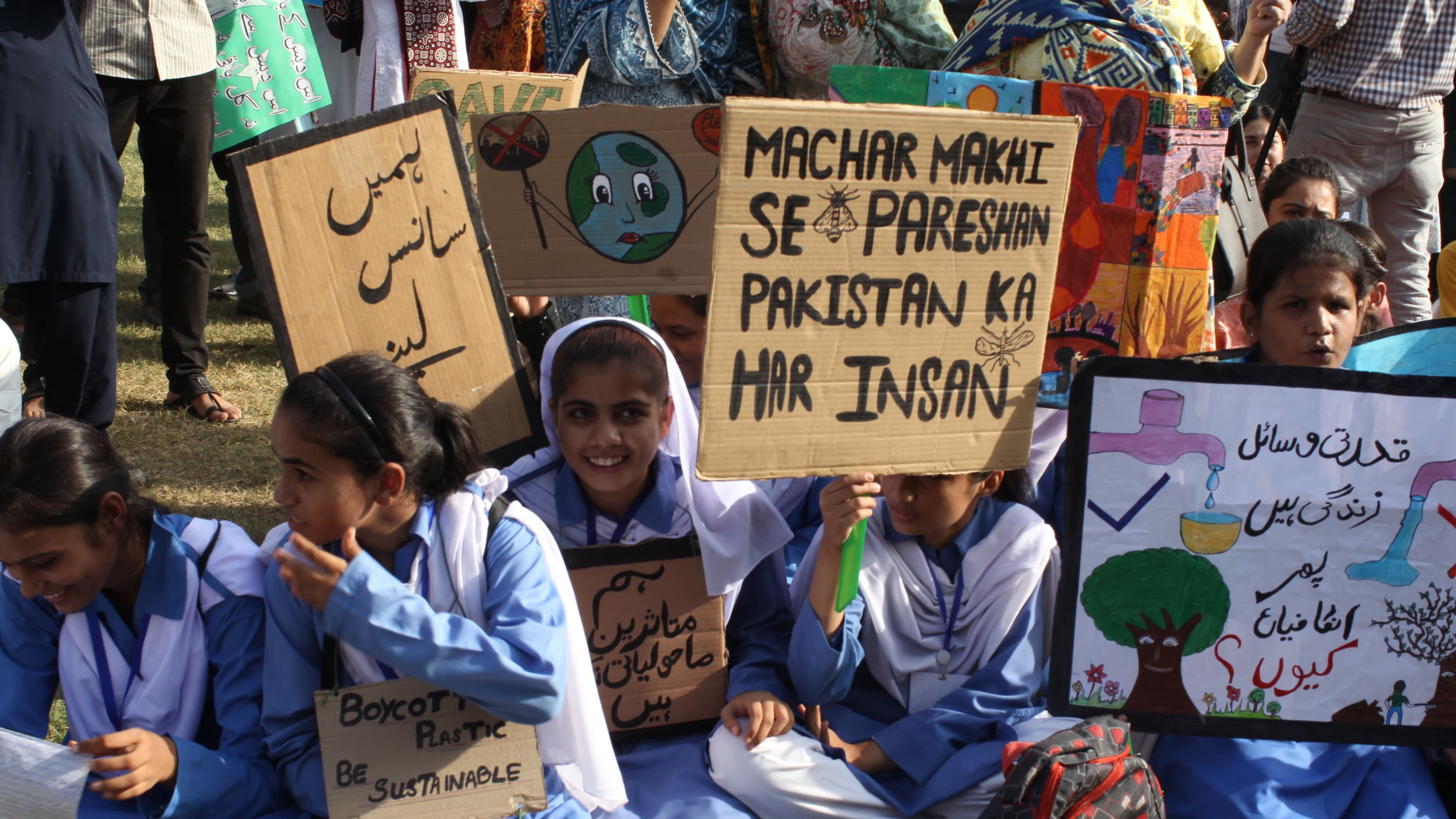Fearing for their future, Karachi's youth march against climate change
Under a blistering Friday sun, a large group of Karachiites — mostly young students — gathered at the city's iconic Frere Hall armed with placards and slogans to join millions across the world raising their voice against climate change.
Mahum Moazzam, a student at the Indus Valley School of Art and Architecture, described a "crippling fear" that she might not get to fulfill her dream of being an architect one day.
"It's that fear that wants me to be a part of this activity and make sure that our voices are heard," she said.

Moazzam hoped the march would make government officials sit up, take note and enact a "green deal" to address the crisis.
Pakistan has been the eighth most affected country by the impact of weather-related events between 1998 and 2017, according to the ‘Global Climate Risk Index, 2019’.
Karachi, in particular, has become increasingly aware of the impact of extreme weather conditions.
In 2015, the city experienced a severe heatwave that resulted in over 1,200 deaths. It was described as the deadliest heatwave Pakistan had seen in over 50 years. Since then, the metropolis has experienced more such spells.

Even on the day of the march, Karachi was in the grip of a moderate heatwave, with the temperature hovering around 37 degrees in the afternoon.
Volunteers adorning yellow and black bands could be spotted all over the venue. One such volunteer, Aadil Ayub, said that he had started reading a lot of climate reports since earlier this year and the "bleak news" had given him anxiety.
"From March to April, I was proper depressed because I couldn't square the minute reality of my daily life with the colossal issue of climate change.
"My entire lifestyle was wrapped up in it, you know. You can't stop consuming fuel; you can't give up your industrial capitalist lifestyle that we all live. I felt culpable," he said.
Ayub set a resolution to become involved in the global effort and join the 'climate strikes' by August. He subsequently started helping at Climate Action Pakistan, a citizen-led initiative organising the marches in the country.
He said that the group had created awareness and spread the word through social media platforms such as Instagram, Twitter and WhatsApp. Ahead of and throughout the countrywide marches on Friday, the group shared updates through its social media accounts.
On WhatsApp, the organisers had formed groups of 200 to 250 people in each city, Ayub explained. These became the primary medium for spreading the word.

This is how 19-year-old Fatima Shah learned about the event.
"I'm at the march because I feel like if we don't speak up and if we don't ask for change, there will be no change," she said, holding up a poster that read: 'I was hoping for a cooler death'.
Arhum, 19, a student at the Institute of Business Administration (IBA), said that climate change advocacy was a 'passion' for him.
"I'm here at this march to broaden what is a very shallow representation of climate change in Pakistan," he said. "It's not just Karachi that is getting hotter — there is so much more to it. A lot of it you don't even see in the big cities, but droughts are happening all across Sindh and Punjab.
"The root cause is climate change and we aren't giving it enough attention," he worried.
Arhum hoped that in the age of social media, if such awareness could reach younger individuals who will soon be eligible to vote, systematic changes could be enacted.
"The people making the difference are the people here or the people reading about it on social media," he added.

Various posters held up by Karachites at the march expressed similar fears about climate change and drew attention to the issue. There were also slogans for 'climate justice'.
Three high school students from Indus Academy — Anjiya, Diya and Raiha — carried recyclable bags which were handed out during the event.
The bags read, 'Don't be a drag, reuse this bag'.
"We feel that it is high time that we start acting on climate change and [realise] how it has such a drastic effect. I think the world is doing a very exceptional job in following in [teenage climate campaigner] Greta Thunberg's footsteps and really, you know, working towards this issue," one said.
"Honestly, we're so tired because so many adults don't speak up on this issue and we are doing what they won't," added another.

According to activist and lawyer Jibran Nasir, the march should make politicians realise that they have an existing and growing vote bank that wants the environment to be taken seriously.
"I have come to the march for extremely selfish reasons and I believe that everyone has come here for extremely selfish reasons: we all breathe, eat and drink water and we want that the food, air and water to be clean and sustainable," he said.
Nasir added that the other purpose of the march is to sensitise young Pakistanis to this cause in their early years so that the movement can become a long and sustainable one.

This is also why Maria Jamil, a mother of three, had brought her children to the march. She said that her children were aware of things happening around the world, such as the Amazon forest fires, thanks to social media, and she had come to the march for their future.
"I think it's important for them because, really, they are the future," she said.
Environmentalist Tofiq Pasha Mooraj said that for the past 30 to 40 years, he had been working on the environment. The fact that so many younger individuals had come out for the climate march meant that what he had done in the past few decades was coming to fruit, he said.
"The youth has realised [the urgency of the matter] because it is their neck now," he said.

As the sun began to set at Frere Hall, the attendees walked off its lawns and onto the streets of Karachi. As they marched on one side of the busy Abdullah Haroon Road, curious passersby stared at the gathering from inside air-conditioned cars, wondering why they had shut down a main road at rush hour.






